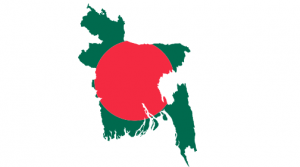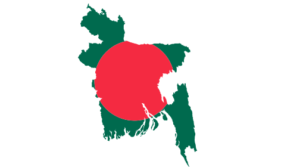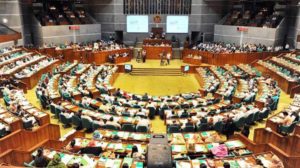
Bangladesh May Turn Into A One-Party State After Sheikh Hasina’s Moves
Dhaka, Bangladesh – The controversial jailing of former Bangladesh Prime Minister Khaleda Zia and the state persecution of dissent have raised fears that the next parliamentary election could turn into a violent show.

With the fear of a 2014 repeat, when there were parliamentary elections with total boycott by almost all the opposition parties and were marred by large-scale violence and killings, runs high in Bangladesh as the ruling Awami League (AL) government faces many allegations of a concerted persecution of its opponents.
While many activists and political workers who were opposed to the government live under an increasing threat of being jailed or worse, there is big concern, even in the public, over what lies ahead in an election year.

The elections for the Parliament in Bangladesh are to be held in December.
Parliamentary elections in Bangladesh are due by December. Nadia Tabassum Khan is an employee of a multinational company in Dhaka, told News Agencies that the Awami League has suppressed all the dissent to such an extent that she does not at all think “anyone would dare to protest against them”.
Hasan Habib is another citizen of the country owning a real estate company based in Dhaka. He expresses”the enmities between the two leading political parties” have made the voting process “a nearly impossible task”.
Since the controversial jailing of Bangladesh’s opposition leader and two-time Prime Minister Khaleda Zia last month, it is proving increasingly difficult for the government of Prime Minister Sheikh Hasina to reject allegations of turning into an authoritarian regime.
Zia was sentenced to rigorous imprisonment for five years on February 8 for embezzling 21 million takas (Bangladeshi Currency equivalent to INR 16 Million) in foreign donations given for a charity named after former President Ziaur Rahman, Zia’s husband. Her elder son and heir apparent Tarique Rahman and four others were also jailed to 10 years in prison.
After a month later Zia was granted bail in the case. However, the country’s Supreme Court of Bangladesh stayed the bail within a week without giving any specific reason, effectively putting the 72-year-old leader in jail till May 8, when the next hearing on her bail application is expected to be held.
The detention and subsequent jailing of the former prime minister, which Zia’s Bangladesh Nationalist Party (BNP) called the Hasina government’s conspiracy to keep the opposition party out of politics started countrywide violence in cities across Bangladesh alongwith BNP supporters clashing with police and ruling party members.
Police records say nearly 300 leaders and supporters of the BNP were held on the day of Zia’s verdict. Since February this year, more than 3,000 members of the opposition party have been put behind bars.
You May Also Read: India Managing Multiple Approaches In China Relationship: Nirmala Sitharaman